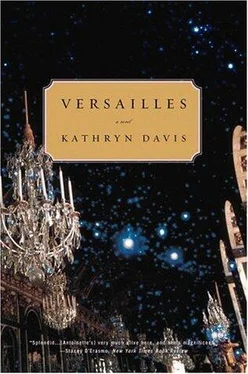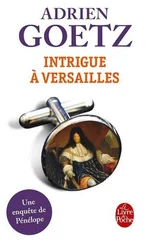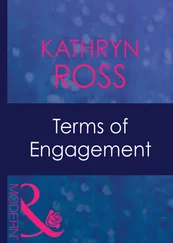Kathryn Davis - Versailles
Здесь есть возможность читать онлайн «Kathryn Davis - Versailles» весь текст электронной книги совершенно бесплатно (целиком полную версию без сокращений). В некоторых случаях можно слушать аудио, скачать через торрент в формате fb2 и присутствует краткое содержание. Год выпуска: 2003, Издательство: Back Bay Books, Жанр: Историческая проза, на английском языке. Описание произведения, (предисловие) а так же отзывы посетителей доступны на портале библиотеки ЛибКат.
- Название:Versailles
- Автор:
- Издательство:Back Bay Books
- Жанр:
- Год:2003
- ISBN:нет данных
- Рейтинг книги:4 / 5. Голосов: 1
-
Избранное:Добавить в избранное
- Отзывы:
-
Ваша оценка:
- 80
- 1
- 2
- 3
- 4
- 5
Versailles: краткое содержание, описание и аннотация
Предлагаем к чтению аннотацию, описание, краткое содержание или предисловие (зависит от того, что написал сам автор книги «Versailles»). Если вы не нашли необходимую информацию о книге — напишите в комментариях, мы постараемся отыскать её.
Versailles — читать онлайн бесплатно полную книгу (весь текст) целиком
Ниже представлен текст книги, разбитый по страницам. Система сохранения места последней прочитанной страницы, позволяет с удобством читать онлайн бесплатно книгу «Versailles», без необходимости каждый раз заново искать на чём Вы остановились. Поставьте закладку, и сможете в любой момент перейти на страницу, на которой закончили чтение.
Интервал:
Закладка:
I was content. Somnolent, dreamy. I imagined my baby, cradled in my arms. A beautiful baby, flawless, with blue eyes and that newborn smell of powder and milk. Sometimes a girl, but more usually a boy, because that was what was expected of me.
"Once you feel the child, you shouldn't sit or lie on chaises longues too much," wrote my mother, "except for an accident, Gott behüte! " So she must have taken pains to protect herself when she was carrying Joseph; by the time I came along she'd already given birth fourteen times and, aside from her need to dispense endless advice, was never exactly what you'd call maternal. Often eight or ten days would go by before I'd catch even the most fleeting glimpse of her, a giantess in chamois riding breeches and high-topped boots, closeted in her room with the Lord High Chamberlain and a mountain of paper. If I had a fever, it would be the court physician who'd lay a cold compress on my forehead; if I had a problem with my needlework, it would be one of the court tutors who'd unsnarl the yarn. As for the routine miseries of childhood, I wasn't allowed to have them. Hurt feelings? A bad dream? Stuff and nonsense. The only monster we had to fear was the King of Prussia.
Whereas I was resolved to be a perfect mother. A sound mind in a sound body, that would be me. I would go to bed early; I would finally read all those books Mercy had been pressing on me for years. I would breastfeed my baby, as Rousseau advised, rather than send him out to a wet nurse, and instead of swaddling him like a mummy, I would let him kick his little legs and shake his little arms as much as he wanted. On nice days I'd take him out in a wicker crib and show him the trees, the clouds, the sky. If he got frightened by the sound of hunting horns winding through the woods, I'd pick him up and kiss him. The King of Prussia might still be a monster, threatening war with Austria in retaliation for my brother Joseph's invasion of Lower Bavaria. Mercy might be warning me that if France refused to come to Austria's aid, it would kill my mother. And my husband might be reminding me that if it weren't for my brother's ambition, there wouldn't be a problem in the first place. Affairs of state, in other words, might require most of my attention, but the truth is, my heart was elsewhere.
Which maybe is what it means to be content: the heart safely secluded, a world unto itself.
Unlike being in the grip of Eros, who takes you over, transporting you so thoroughly it's as if you have no heart, no head, no flesh even, every part of you burning in a single bright flame.
Unlike pleasure, which must be sought after.
The first time I felt the baby move I was walking through the Low Gallery with the strapping Princesse de Guéménée, her omnipresent pack of dogs, and the dainty flowerlike Madame Dillon. We were in those days still the best of friends, despite the fact that the Princesse's husband was madly in love with Madame Dillon, who was, herself, loyally devoted to him. It was late afternoon, the end of July; the sun was preparing to fall into the Atlantic Ocean hundreds of kilometers away to the west, bathing everything as far as the eye could see, trees and lawns and fountains and pools, in a molten red-gold light, as if the whole world were composed of a single red-gold substance.
"You'll want to establish a room for the baby here on the ground floor, adjacent to the terrace," announced the Princesse, speaking from her position as Governess to the Children of France. "That way, as soon as he is able, he'll take his first steps outdoors in the fresh air." She was a tall, rather badly made woman who, though pretty, maintained an unwavering look of deep concern, chiefly for the stupidity of others, and who claimed to communicate with the spirit world through her dogs.
"You seem so sure it will be a boy," said Madame Dillon. "I would predict a girl."
"Oh?" said the Princesse. "Why is that?"
"The way she carries."
"Antoinette is wide and flat through the hips. She has no alternative. Besides" — and here the Princesse indicated her dogs with a sweeping gesture—"I have it on the best authority. By next Christmas France will have the heir we've all been waiting for. A strong healthy baby boy, the reincarnation of Louis Quatorze himself."
We had come to a halt by one of the tall windows lining the Gallery; the light was no longer red-gold but red, and thin, almost watery, the way it gets when it prepares to fill with darkness. Lanterns hanging from the prows of the gondolas on the Grand Canal, lanterns circling Latona and her frogs, moving back and forth across the terraces, ferried by dark figures, men and women dressed for dancing and intrigue, mounting the steps between the Vases of the Sun.
Meanwhile the Princesse de Guéménée continued droning on and on. Clio, yap yap yap, animal magnetism, blah blah blah…"I still say it will be a girl," chimed in Madame Dillon. "You will be a girl, won't you?" she said, sweetly addressing my stomach, at which moment I felt the baby swim toward the surface like a fish about to leap from the water into the thin red air, as simultaneously a group of masked men and women burst through the doors from the Southern Terrace, bringing with them the combined smells of attar of roses, brandy, and perspiration. Racing together, laughing and chattering, their voices echoing off the smooth stone walls and the vaulted ceiling.
Pleasure-seekers, all of them.
The City of Sows, who can't be satisfied with noble loaves of barley and wheat but must have relishes and desserts. That's what Plato said.
Painting, embroidery, gold, ivory. Perfume, jew-elry, courtesans, wine. Poets, rhapsodes, actors, choral dancers, beauticians, barbers, relish-makers, cooks.
Swineherds, too, to fatten the pigs so they'd be good to eat.
The City of Sows, the Feverish City. See them turning and turning on their golden spits, their fine skin cracking, releasing fat.
Whereas I was content. I was content for that one little moment as I stood by the tall window in the Low Gallery in the growing darkness, feeling my baby move inside me.
Speeches have a double form, the one true, the other false.
Plato also said that.
Duettino
(after Mozart)
MERCY (entering the Bull's Eye Chamber through a door, stage right)
All is not lost yet;
We can still hope.
(Antoinette enters stage left, humming to herself, the red velvet bag containing her missal over one arm.)
But here is the Queen; a golden opportunity.
I'll pretend not to see her.
(Aside, loudly)
If only she would come, that pearl of virtue,
Whose charms the King cannot resist.
ANTOINETTE (aside, holding back)
He's talking about me.
MERCY (aside, to himself)
After all, in this strange land
She's the best one can hope for.
Style means everything.
ANTOINETTE (aside)
A spiteful tongue! Lucky for him
He has my mother's blessing.
MERCY
Bravo! Such discretion!
And those modest eyes,
That demure expression,
Those…
ANTOINETTE (aside)
Enough is enough.
(Both spring into motion, meeting at the door to the King's Bedchamber)
MERCY (executing a deep, satiric bow)
After you,
Your Royal Highness.
ANTOINETTE (executing a low, satiric curtsy)
No, I insist,
Most worthy sir.
MERCY
No, you go first, pray.
ANTOINETTE
No, no, after you.
MERCY AND ANTOINETTE (together)
Your words can sway the King;
Mine are like millet seed.
MERCY
Expectant mother, first.
ANTOINETTE
First, brilliant statesman.
MERCY
Читать дальшеИнтервал:
Закладка:
Похожие книги на «Versailles»
Представляем Вашему вниманию похожие книги на «Versailles» списком для выбора. Мы отобрали схожую по названию и смыслу литературу в надежде предоставить читателям больше вариантов отыскать новые, интересные, ещё непрочитанные произведения.
Обсуждение, отзывы о книге «Versailles» и просто собственные мнения читателей. Оставьте ваши комментарии, напишите, что Вы думаете о произведении, его смысле или главных героях. Укажите что конкретно понравилось, а что нет, и почему Вы так считаете.












